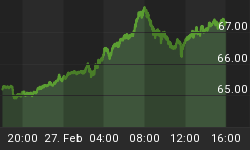For the first time in close to a century, mankind may be about to give serious attention to a technology that has the potential to be a true game-changer in transportation.
Elon Musk famously proposed the idea of the Hyperloop a few years ago, and suggested it could be a revolutionary method for travel based on available technology today. The Hyperloop has already created extreme controversy with skeptics citing everything from the cost of land in California to the substantial g-forces that would impact passengers being accelerated from 0 to 700+ miles per hour in a short span of time. Yet while there are reasons to be cautious about the technology, the Hyperloop should also be cheered as the continuation of a long tradition of American innovation and pushing the boundaries of the human experience.
Now Musk's Hyperloop looks set to take its first tentative steps towards reality as a test version of the track is nearing the construction phase. This begs an interesting question - if the Hyperloop works, how big of a disruptive force would it be for the airline industry? The Hyperloop certainly has other (arguably simpler) market opportunities than moving people, such as disrupting the air freight or trucking industry, but those are issues for another time. For today, it's useful to just think about the impact of the Hyperloop on the airline industry.
In practice the Hyperloop's ability to compete with airlines is going to be driven by a combination of price of tickets and travel time. Price, in turn, will be substantially impacted by energy costs for transporting passengers in the Hyperloop. The technology behind the actual test track of the Hyperloop is well proven, but not on the scale that Musk and others need to see for the Hyperloop to actually function. Instead, there are a few possible ways to power a Hyperloop capsule in theory.
The Hyperloop capsule represents something like a cross between the pneumatic tubes found at banks and hospitals today (and which once crossed miles of cities decades ago) and a maglev train. Determining exactly how much power a Hyperloop would require is tricky at this stage but it's also an important issue. One of the reasons that some previously new transportation ideas, like hovercraft, have never really gotten off the ground is their massive energy requirements.
So how much energy would be needed to "shoot" a Hyperloop canister along the tube? The proposal from Musk originally envisioned a constant energy source in the form of a compressor rather than simple impulse acceleration (like a bullet). It's not totally clear if the new test tracks will deviate from the original proposal or not, but assuming that the designers stick to roughly what Musk originally proposed, a 436 hp (325 KW) capsule motor would be required.
For comparison, trains' locomotives frequently have around 4,000 horsepower, while a typical car often has around 150 hp. The biggest challenge here is how much friction the system will face from the air around it. In particular, the system needs to produce a large enough pressure in order to move the capsule along the track. The math behind the mechanics of moving the tube is a little complex, but a back of the envelope calculation based on Force, Pressure, Area and Ideal Gas law calculations suggest Musk's estimates are reasonable. (For those interested, a good overview of the relevant mechanics properties are here).
Overall, the Hyperloop would use perhaps as little as 27 kW of power per passenger (assuming a very conservative 6 passengers per tube and a 30 minute travel time on the trip). The power requirement increases if the tube size increases of course, but on a per passenger basis that is relatively irrelevant. Essentially the math here suggests that a Hyperloop tube could move passengers for as little as a few dollars each in energy. The real issue that will determine feasibility then is the capital expenditure cost for the Hyperloop. More on that in a future article.
Article Source: http://oilprice.com/Energy/Energy-General/Elon-Musks-Hyperloop-Takes-a-Step-Forward.html
By Michael McDonald of Oilprice.com















